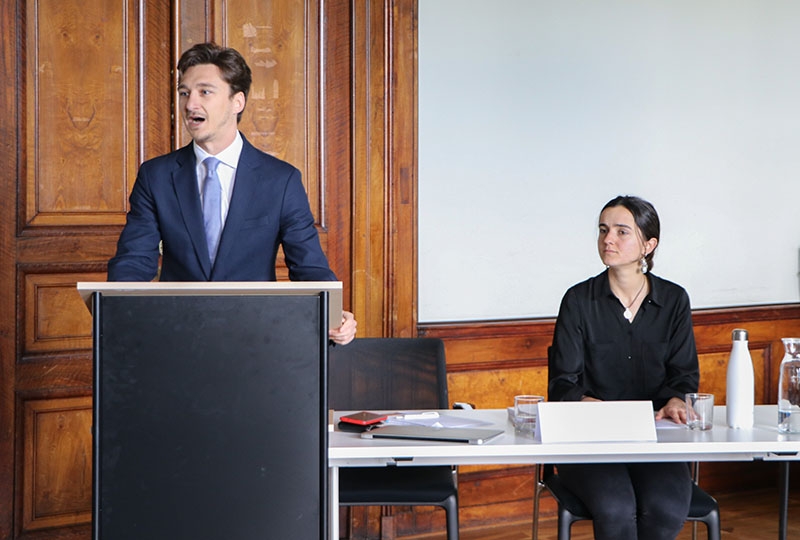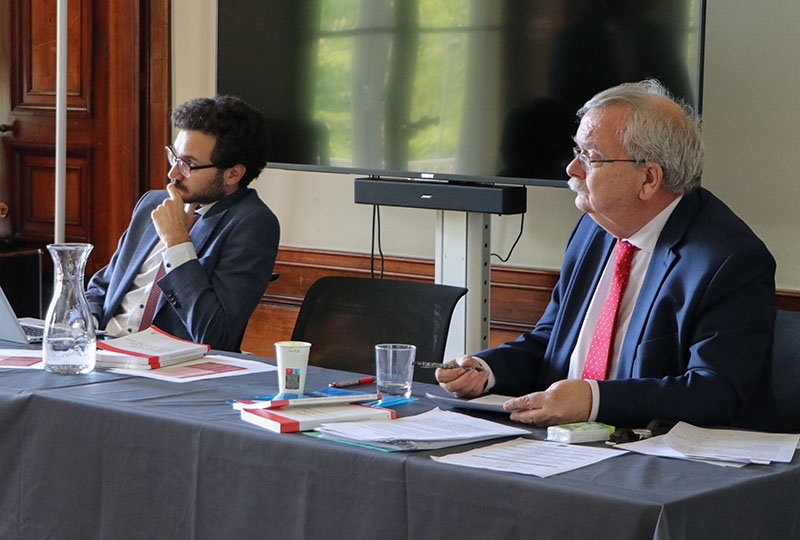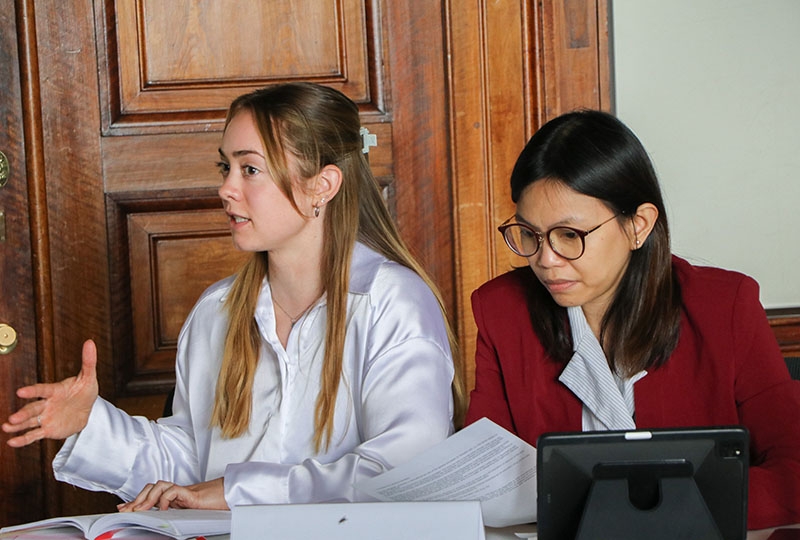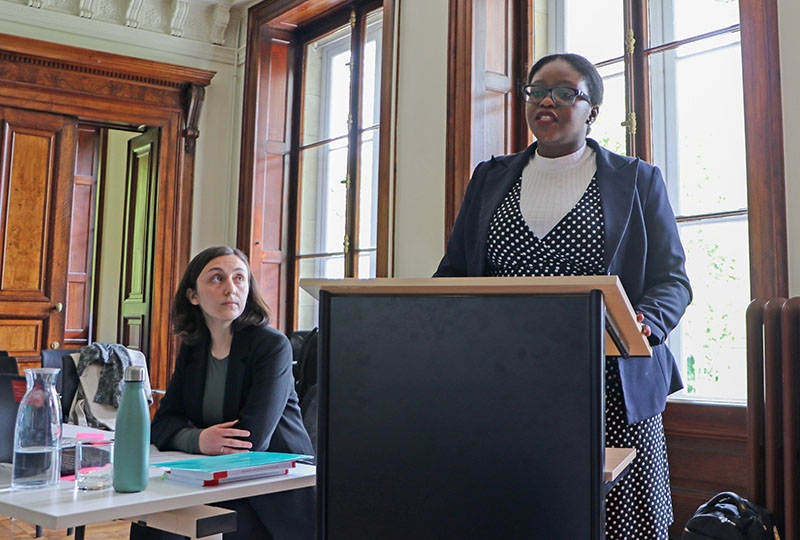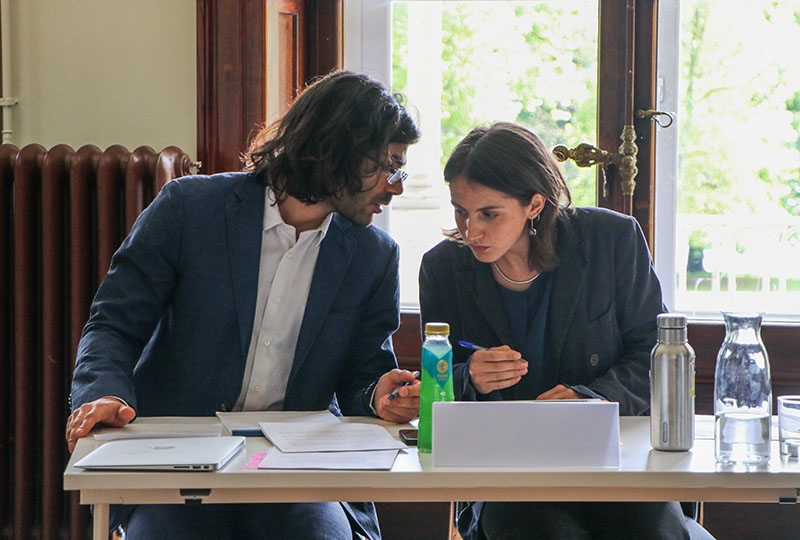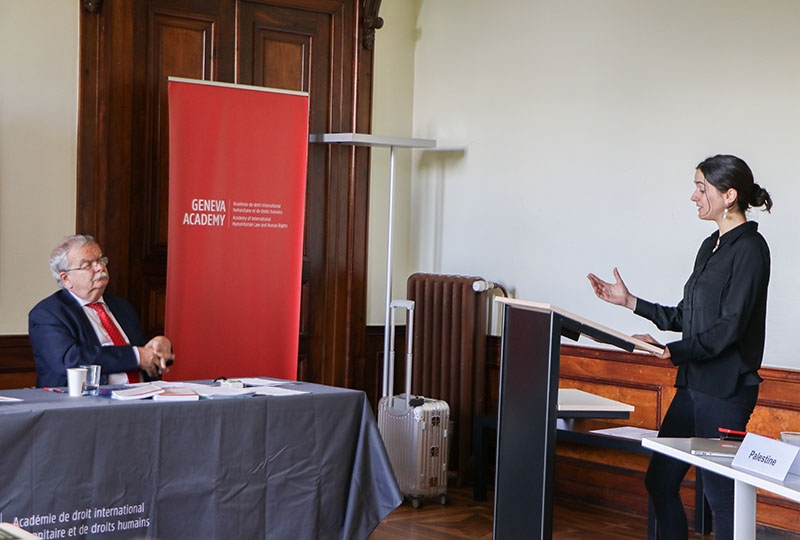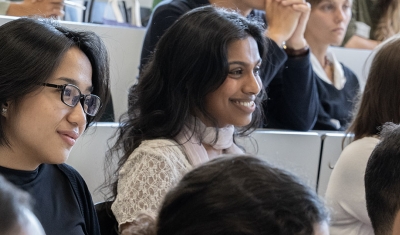‘This exercise challenges the students to not only think of the creative ways in which they can persuasively defend their clients, identifying the facts they need to make their legal arguments, but to also practice the art of advocacy. Presenting arguments with vigor and strength requires a combination of different skills. It also presents an opportunity to practice IHL as professionals and trains them in delivering convincing submissions before domestic and international courts as international lawyers’, noted Revaz Tkemaladze.
Professor Sassòli reflected, ‘I admired the quality of most of the arguments, but above all the fact that the students accepted to take part in this exercise in the current tense atmosphere, calmly but professionally arguing on behalf of a party to the conflict for which they do not necessarily have sympathy and which they perhaps consider responsible for the current situation. These students understood something what is rarely understood in relation to the current war: even those fighting for the best cause must respect international humanitarian law.’
Revaz Tkemaladze continued, ‘Despite the intensity of the LLM program and multitude of other assignments going on in parallel, the students showed their full dedication to this activity and excelled in their pleading presentations. The complexity of this pleading cannot be underestimated as it required understanding of both historical events and evolving situation on the ground, as well as tackling complex legal questions surrounding siege and urban warfare or interplay between the law of occupation and the law governing the conduct of hostilities. To accomplish this, they researched through the plethora of legal and factual material, such as reports, commentaries, articles, blog posts, findings of international organizations, domestic and international court decisions and parties’ actual pleadings. The submissions were well-researched and nuanced, exceeding our expectations.’
Interested LLM students who were not pleading had the possibility to watch their peers and improve their understanding of the legal issues surrounding the Israeli-Palestinian conflict.


